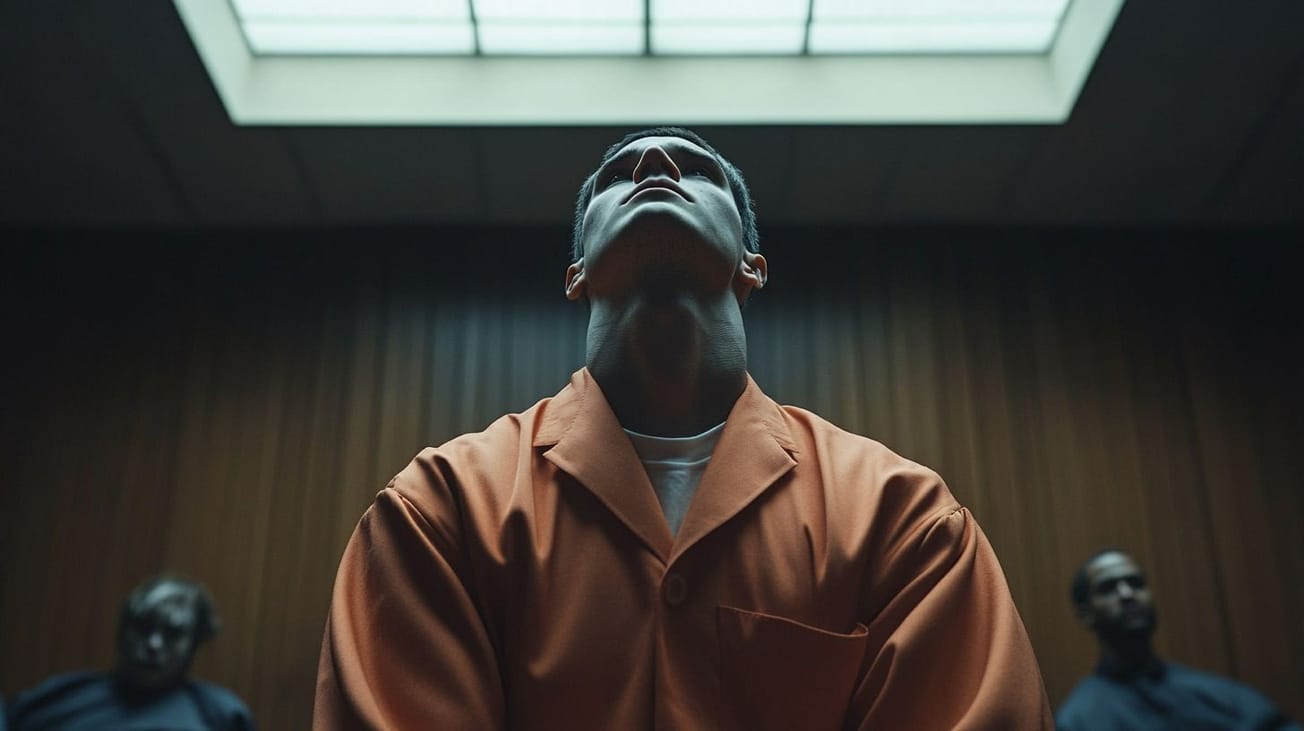A Kentucky man is suing Netflix for using a photo of him holding a hatchet in a true crime documentary. Taylor Hazlewood, who works as a respiratory therapist in an intensive care unit, claims he had no knowledge of the documentary and that he has no connection to the murder case it features. The lawsuit states that after "The Hatchet Wielding Hitchhiker" was released on Netflix, Hazlewood began receiving texts and questions from friends and family about his picture being used in the film. He is now suing Netflix for defamation and misappropriating his likeness.
The true-crime documentary focuses on Kai McGillvary's 2013 arrest following allegations of murdering Joseph Galfy Jr., with whom he allegedly met through Craigslist personals ad section before spending two days together at Mr.Galfy’s home where they drank alcohol.
McGillvary claimed self-defense but was convicted of first-degree murder in 2019; since then been sentenced to 57 years behind bars.
Hazlewood posted an image featuring himself holding what appears to be a hatchet or small axe back June 19th, accordingly court documents filed last week by attorneys representing both sides (Netflix) show.The photograph shows only half Hazelwoods face which makes this mistake more understandable
In February earlier this year,Kai Mcgillivray sued several defendants including netflix accusing them ruthlessly exploiting my life story just so you can make money off me
Then,on Janurary tenth,this year,the text messages started pouring into hazelwoods phone asking if hes seen how famous kyle mcgilvray became overnight when people saw taylor hazlewods instagram post
“Hazlewood is beyond angry” according to Washington Post article “that Netlfix would implicate connect him such salacious infamous story individual”
This raises concerns over whether streaming services like Hulu are doing enough research prior releasing content especially around True Crime stories. It is important to note that streaming services have a responsibility to do their due diligence and ensure they are not using someone's likeness without permission or implicating them in any crime. This lawsuit serves as an example of the importance of conducting thorough research before releasing content.
While it remains unclear whether Hazlewood will win his case, this incident highlights the need for greater transparency around how streaming platforms source images used within documentaries.The use of stock footage should be more transparently disclosed so people can understand what has been done with their image.
It also shows why there needs to be better communication between filmmakers and subjects featured in true-crime films; had Netflix reached out beforehand,taylor hazelwood wouldnt have felt like he was being implicated
This event raises questions about privacy on social media sites such as Instagram where photos posted publicly could potentially end up anywhere online including True Crime Documentaries.
Regardless,Hazlewoods lawyers argue that “Hazlewood’s reputation has already suffered harm” from Netlfixes actions which may result in compensation through legal action.
While we wait for further developments regarding this ongoing case,it is essential that all parties involved take steps towards ensuring greater clarity when sourcing imagery. It's time TV networks start doing proper background checks prior airing these types of programs especially those involving real life events.This situation calls into question ethical practices surrounding documentary filmmaking,and hopefully leads us toward a future where everyone involved feels respected protected during production process
Man sues Netflix for defamation and misappropriating likeness in documentary
A Kentucky man is suing Netflix for using a photo of him holding a hatchet in a true crime documentary. Taylor Hazlewood, who works as a respiratory therapist in an intensive care unit, claims he had no knowledge of the documentary and that he has no connection to the murder case it features.





